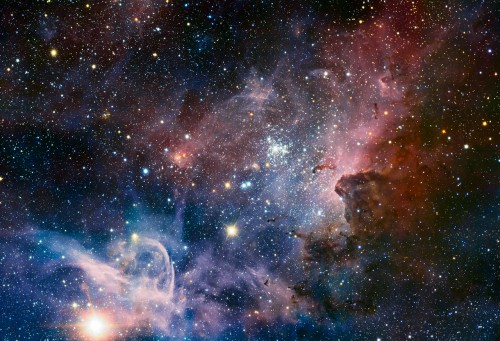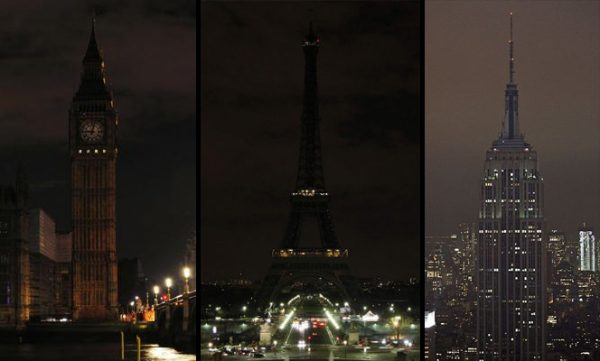Space. It’s a big old space.
Insert awesome picture of space to keep people interested. Check.

The Carina Nebula – Picture taken by The European Southern Observatory (ESO).
What happens here on Earth is insignificant in the universe. That doesn’t mean things that happen here are unimportant – far from it – but in reality, we are tiny. Nothing we have done or can do has much of an impact on the universe. Nothing that happens here on Earth affects the marvellous enormity, complexity and vastness of space.
Our lives, this entire planet, our solar system and even galaxy are tiny. Nobody really knows how tiny – relatively – because nobody knows how big the universe is. Or at least how big it is it a specific point in time – given its changing and expanding nature.
I really enjoy learning about space, so I have decided to write a series about space.
In this series I plan to cover some of space’s big topics; including:
- How big (or indeed small) are we really?
- Information on the International Space Station
- Will humans ever live on other planets?
- Black holes
- The future of space exploration
- How has our knowledge of space changed things on Earth?
Key Terms
There are a few terms I will be using a lot during the course of this series. To help keep us all on the same page, here is how I am going to define them.
Space
Everything everywhere! Anything that exists, exists in space. Space can be a completely empty vacuum or it can be full of matter, or waves such as light and sound. If there is something, or the potential for something to be there, it is space.
Matter
Stuff. Things made of atoms. Tangible objects. Not including electromagnetic waves; like light.
The Universe
The zone of activity in space which contains all known matter.
A Galaxy
A collection of billions of solar systems.
A Solar System
A collection of matter, orbiting a star. That matter includes planets and smaller structures like asteroids.
A Planet
A large body which orbits a star.
Next Week
I have already written next weeks post, so I can tell you with all certainty that I will be exploring the size of the universe. See you then.


